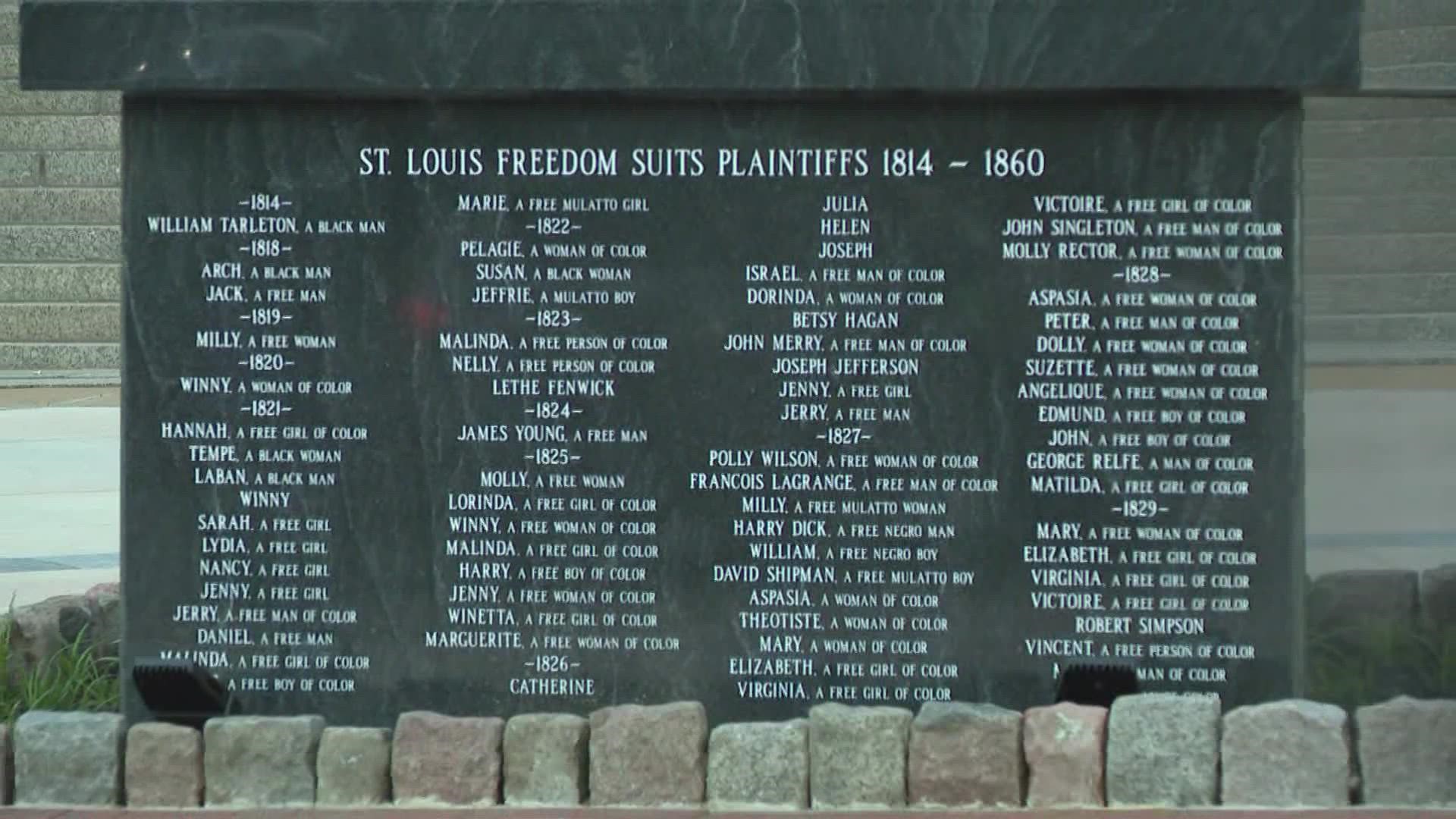ST. LOUIS — A monument is being dedicated Monday evening in downtown St. Louis to commemorate a time when the city was on the right side of history.
The Freedom Suits Memorial outside the Civil Courts Building, located at Market Street and Tucker Boulevard, pays tribute to a time when many people risked their lives for their freedom and the freedom of others.
Honorable Judge David Mason said the legal precedent for most Freedom Suits was this: if a slave owner took his slaves into a free state long enough to meet that state's residency, under Missouri law, freedom “attached" to that person. In Missouri in the years before the Civil War, the theory was – once free, always free.
The sculpture by artist Preston Jackson pays tribute to hundreds of what Civil Courts officials call, "the brave and tenacious Black Missourians who demonstrated great courage to fight for their freedom with the help of some equally brave lawyers, jurors and judges."
This took place over some 57 years, before the Civil War. Judge Mason said out of 400 cases filed, jurors following court instructions freed more than 130 slaves, and their freedom was absolutely protected.
The 14-foot bronze statue will be etched with the names of enslaved plaintiffs in what's believed to be the largest known single collection of their identities. The Freedom Suits cemented St. Louis as the country's most active legal venue for these cases.
It's a 14 year-long labor of love for Mason. When the sculpture arrived on June 15, it marked Mason's first time seeing it in person.
“Are you a parent?” Mason asked a reporter standing nearby. “Remember when you first saw your baby? Did you ever see a more perfect child?”
He continued.
“This monument was about the city courts, the lawyers, judges and plaintiffs who were very courageous, took great risk upon themselves, because you can imagine if they lost. Not only were they subject to being killed, but in many cases, they were literally sold down the river to harsher conditions in Louisiana and Mississippi. That's where the phrase ‘sold down the river’ comes from,” he said.
A group of tourists on their way to a Cardinal ballgame passed by the Civil Courts Building when the statue was being put in place.
They spoke to Judge Mason.
“So, you found paperwork in the basement and got this going?” asked one of them.
“Yes,” he replied. “Buried history.”
Larry Crews identified himself as a St. Louis native.
“It may be 90 degrees out here, but I'm getting chills watching this,” he said, “This stuff is cool.”
“I did it because I want it to be familiar to everyone. I want it to be familiar to the first people – definitely African Americans, and Europeans,” sculptor Preston Jackson said.
Mason said in his research, he learned court officials had to keep slaves who came to court in jail during the proceedings to protect them from their owners.
Monday evening’s official unveiling ceremony is scheduled for 5 p.m.

